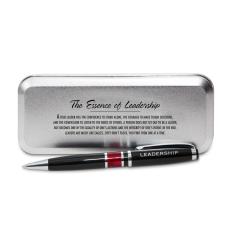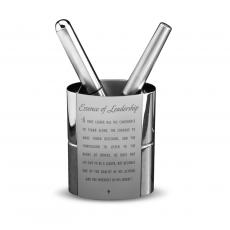Exploring Corporate Gift Ethics
In the fast-paced business world, corporate giving has become a common practice to express appreciation, strengthen relationships, and build goodwill. However, the rules and ethics surrounding corporate giving are essential to maintain transparency, uphold integrity, and avoid potential conflicts of interest. This comprehensive guide will delve into the intricate world of corporate giving, understanding the codes, disclosure requirements, and gift policies that govern this practice.
Corporate giving goes beyond giving presents; it plays a crucial role in shaping professional relationships and fostering a positive work culture. As businesses seek to recognize and appreciate their employees, clients, and partners, it becomes imperative to do so in a manner that aligns with ethical standards and company policies. This comprehensive guide will delve into the intricate world of corporate gifting, understanding the codes, disclosure requirements, and gift policies that govern this practice. We will also explore the significance of rules and ethics for corporate gifts in today's business landscape.
Avoiding Conflict of Interests
Conflict of interest is a significant concern when it comes to corporate gifts. Employees and representatives of a company should be cautious to avoid situations where personal interests could unduly impact business decisions. Companies often establish clear policies on giving and receiving gifts to mitigate this risk.
Honorable gift-giving practices involve avoiding situations where giving or receiving gifts could compromise objectivity. For example, a procurement manager in a company should not accept expensive presents from potential suppliers, as it may influence their purchasing decisions to the detriment of the company's interests.
Disclosure Requirements
Transparency is vital in corporate gifting. Many companies require their workers to disclose any gifts they receive concerning their work. This transparency helps to maintain trust and ensures that potential conflicts of interest are promptly identified and addressed.
Personnel are typically required to report any gifts of significant value, especially from clients, vendors, or business partners. The threshold for what constitutes a "significant" gift may vary from one organization to another. Still, it usually includes gifts that could reasonably be influencing business decisions.
Gift Policies & Limits
For instance, a company may have a policy that restricts team members from accepting gifts with a value exceeding $100 from clients. This limitation aims to prevent undue influence while allowing for gestures of appreciation.
Gift policies also extend to the giving side, where companies may have guidelines on the types of gifts their team members can give to clients or partners. These policies ensure that gifts are thoughtful and appropriate, aligning with the company's values and brand image.
In the next part of this guide, we will explore more aspects of business giving, including the role of compliance, ethical considerations, and how companies can strike the right balance between expressing gratitude and adhering to ethical standards.
Compliance and Ethical Considerations
Compliance with company gifting rules and honorable considerations is vital for businesses to maintain their reputation and avoid potential legal issues. Let's delve deeper into these aspects:
Compliance with Regulations
In addition to internal company policies, businesses often must adhere to external regulations related to company gifting. These regulations can vary by country, industry, and context. For example, the Foreign Corrupt Practices Act (FCPA) in the United States prohibits bribery and corrupt practices, including giving gifts to influence government officials or business partners.
Understanding and complying with such regulations is crucial to avoid legal consequences and reputational damage. Many businesses invest in compliance training for their workers to ensure they know the legal framework surrounding corporate gifting.
Ethical Considerations
Ethical considerations go beyond just following rules and regulations. They involve making morally sound decisions and maintaining the highest level of integrity in all corporate giving interactions.
When selecting gifts for clients, staff, or partners, companies should consider whether the gifts align with their and recipients' values. Honest gifts involve choosing thoughtful, respectful, and relevant gifts to the recipient's interests and needs.
Moreover, companies should avoid extravagant gifts perceived as excessive or wasteful. A moral approach to corporate giving focuses on the sentiment and meaningfulness of the gift rather than its monetary value.
Striking the Right Balance
Balancing showing appreciation through corporate gifting while adhering to codes and ethics can be challenging but is crucial for long-term success. Here are some tips on striking that balance:
Know Your Audience: Understand the preferences and policies of your clients, partners, and employees. Tailor your gifts accordingly to ensure they are well-received.
Set Clear Policies: Establish clear gift-giving and receiving policies within your organization. Communicate these policies to employees and guide compliance.
Avoid Conflicts of Interest: Encourage transparency among your team members when disclosing gifts. Create a culture where decent behavior is valued and rewarded.
Focus on Meaningfulness: Instead of extravagant gifts, opt for thoughtful and meaningful tokens of appreciation. These can have a more lasting impact.
Educate Your Team: Provide training on corporate gifts guidelines, regulations, and ethics to ensure your employees are well-informed.
Ethical Corporate Gifting
Corporate giving is an essential aspect of modern business culture. Still, it must be approached with care, integrity, and adherence to established laws and moral standards. By understanding the importance of avoiding conflicts of interest, disclosing gifts, and adhering to policies, businesses can successfully navigate corporate giving while maintaining trust and building positive relationships.

































